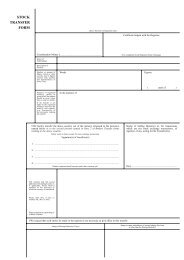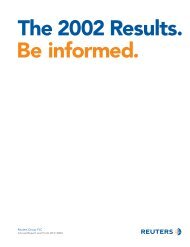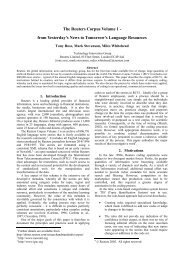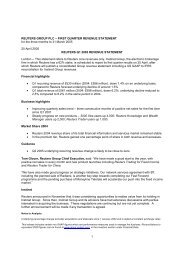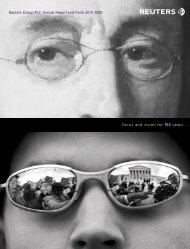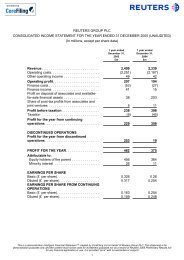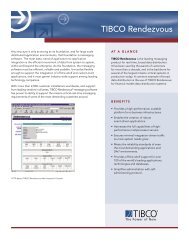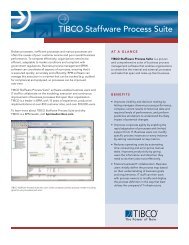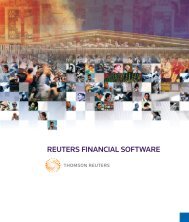TIBCO Staffware Process Suite
TIBCO Staffware Process Suite
TIBCO Staffware Process Suite
You also want an ePaper? Increase the reach of your titles
YUMPU automatically turns print PDFs into web optimized ePapers that Google loves.
These business rules are best organized into rule sets and invoked by the <strong>TIBCO</strong> i<strong>Process</strong><br />
Engine at the appropriate points in the process flow for the following reasons:<br />
• Further reduce transaction costs: By better automating complex decision-making<br />
tasks which currently require human intervention, significant savings can be<br />
achieved.<br />
• Eliminate errors: Automated rules ensure that best practices are applied to complex<br />
decisions consistently, significantly reducing errors and their consequences (e.g.<br />
poor customer service, improper billing, and compliance failures).<br />
• Greater flexibility: Separation of rules from the controlling process allows the rules<br />
to be changed independently from the process. This improves business agility,<br />
allowing the enterprise to react to changing business conditions or to quickly<br />
automate more of the exception cases.<br />
• Simplify the process: External rules can be used to reduce the number of steps<br />
required in the controlling process model by delegating the complexity of decisionmaking<br />
to the rules engine.<br />
• Further reduce the impact of personnel loss: By capturing “best practices” in a<br />
combination of rules and process definition, organizations can mitigate the risk of<br />
losing key individuals and retraining new staff.<br />
<strong>TIBCO</strong>’s i<strong>Process</strong> Decisions technology addresses all of the shortcomings presented by<br />
other business rules engine technologies when used in the context of a BPM solution:<br />
• Business rules can be modeled, analyzed and tested by business analysts using the<br />
same skill level as a good spreadsheet user. In fact, the spreadsheet-like, decision<br />
table interface can be learned in minutes.<br />
• Rule sets can be virtually guaranteed to be complete and unambiguous through<br />
automated rule analysis features.<br />
• Getting the rules right has historically been a problem involving lengthy test-debugfix<br />
cycles. Working within the spreadsheet-like user interface, <strong>TIBCO</strong> i<strong>Process</strong><br />
Decisions directly identifies conflicting rules, missing rules, and looping rules--even<br />
before proceeding to testing with test data.<br />
<strong>TIBCO</strong> i<strong>Process</strong> Engine leverages the up-front analysis of rules and generates the<br />
maximally efficient code set. Benchmark tests comparing <strong>TIBCO</strong> i<strong>Process</strong> Decisions to<br />
other rules engines show a dramatic difference in favor of <strong>TIBCO</strong> <strong>Staffware</strong> <strong>Process</strong> <strong>Suite</strong><br />
for BPM-size work documents. This performance complements <strong>TIBCO</strong> i<strong>Process</strong> Engine’s<br />
high scalability.<br />
T I B C O S ta f f w a r e P r o c e s s S u i t e 10



